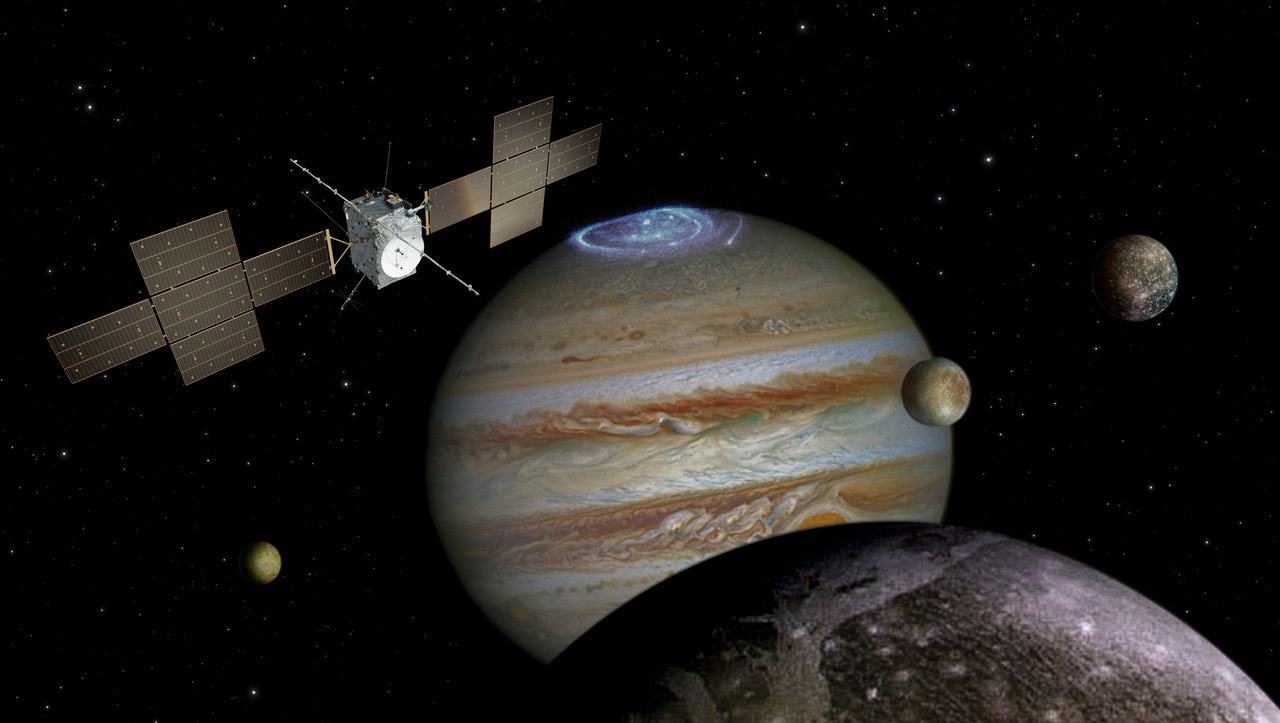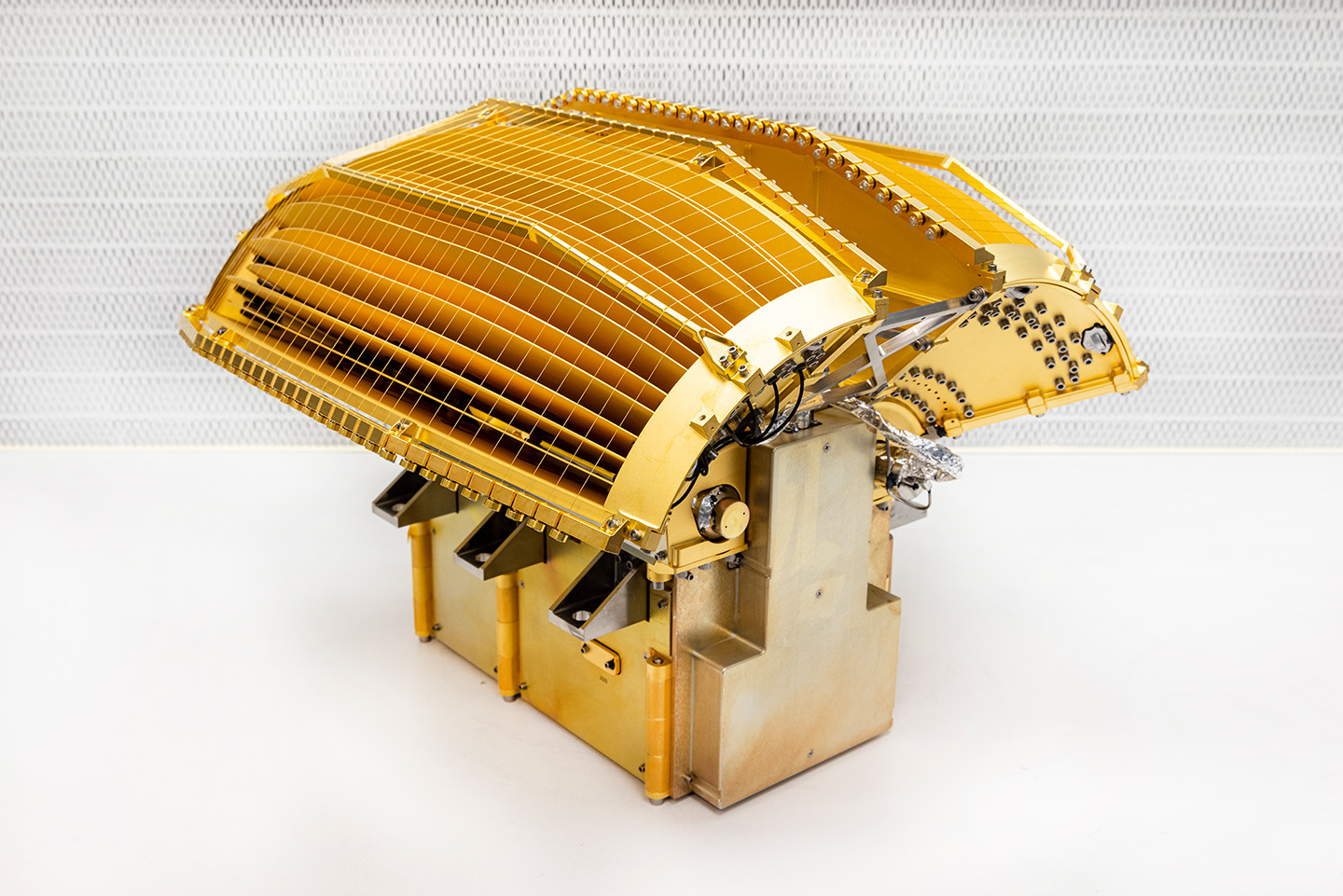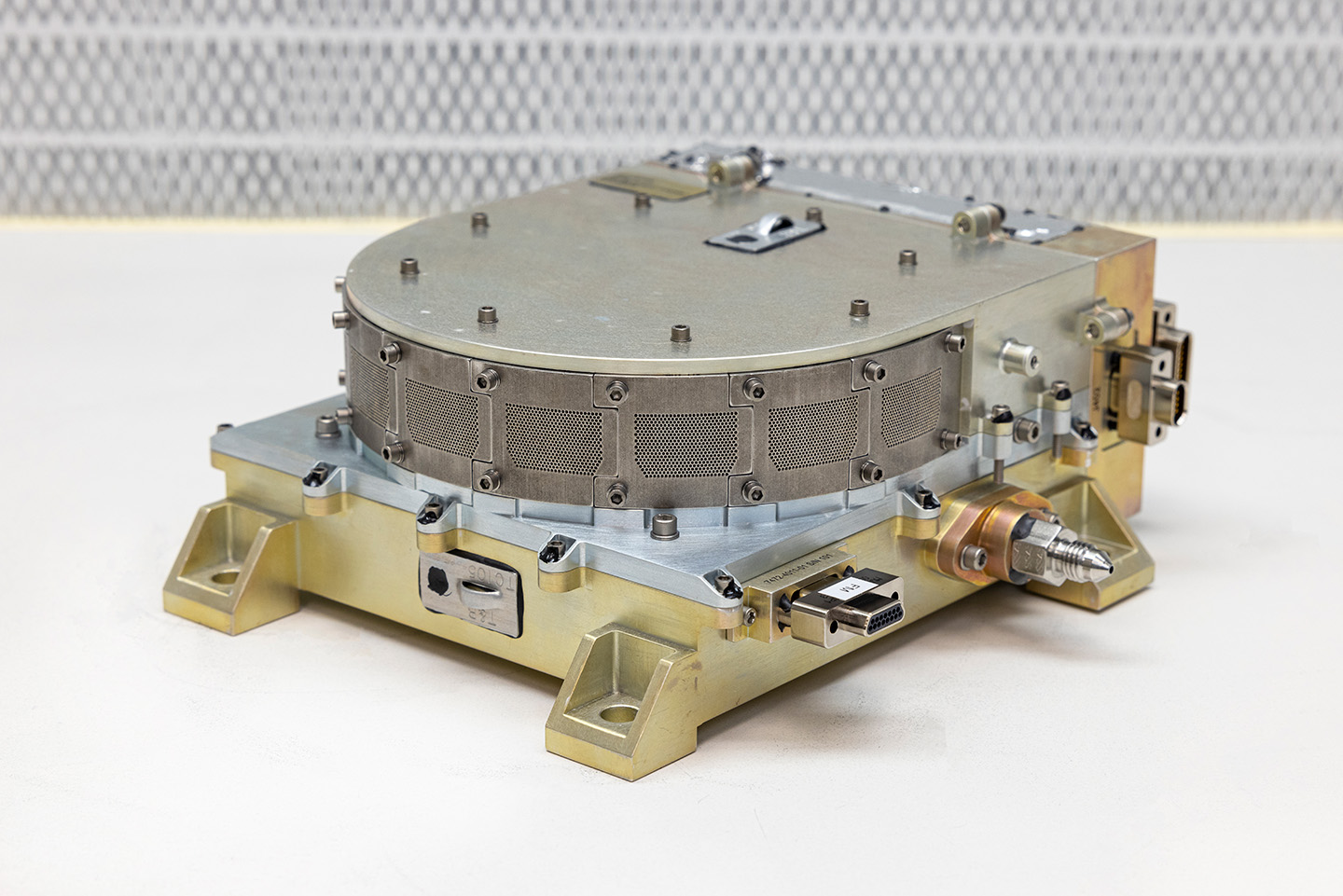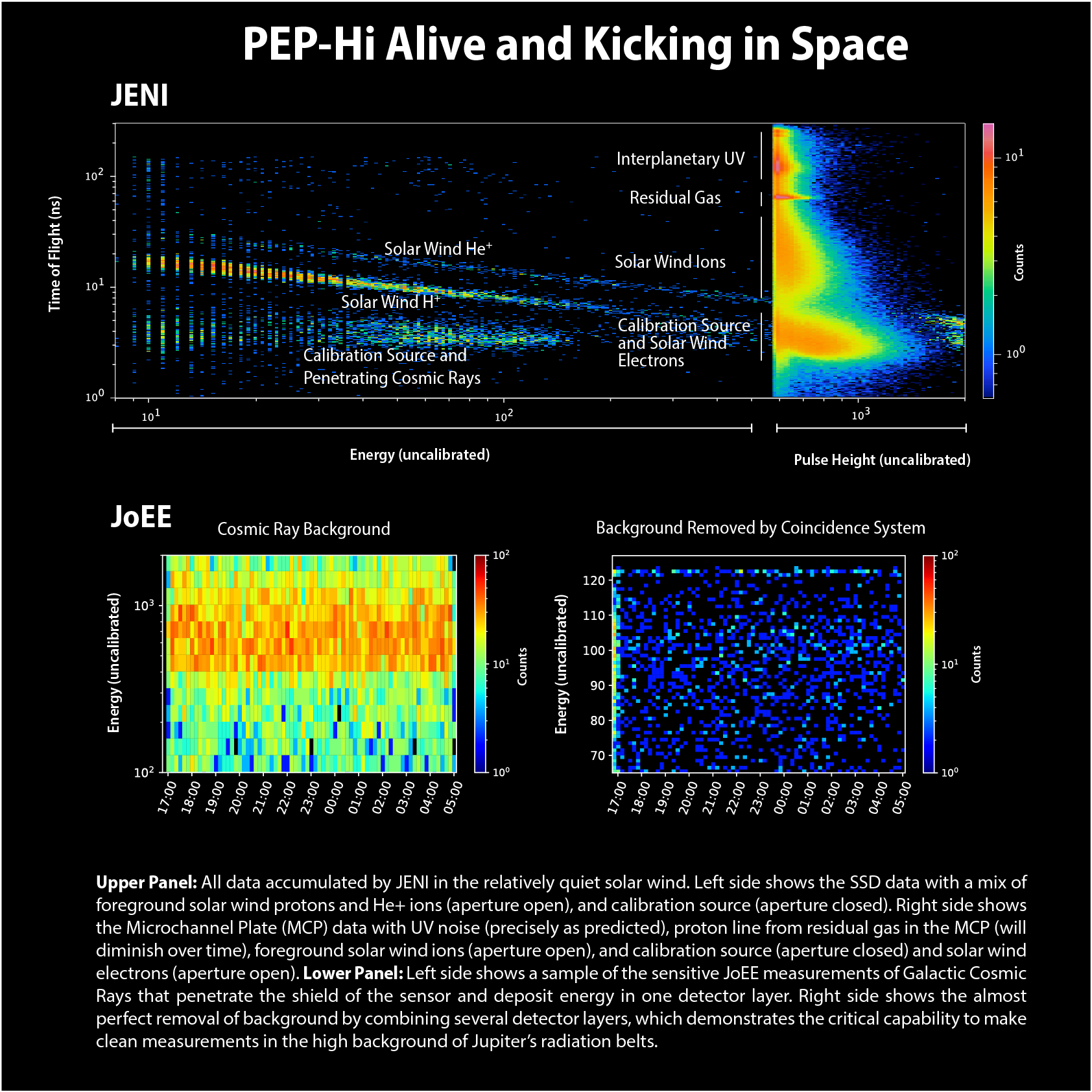News
Johns Hopkins APL Particle Instruments Aboard Europe’s Jupiter Mission Successfully Hum to Life
Two months after their successful launch from French Guiana, the pair of particle instruments built by the Johns Hopkins Applied Physics Laboratory (APL) on behalf of NASA for the European Space Agency Jupiter Icy Moons Explorer (JUICE) spacecraft successfully hummed to life.
On June 5, spacecraft operators in Germany switched on the instruments, called Jovian Energetic Neutrals and Ions (JENI) and Jovian Energetic Electrons (JoEE). Together, they form the high-energy Particle Environment Package, or PEP-Hi, which is itself part of the six-instrument suite PEP.
For just over a week, operators alongside instrument team members who called in from or near APL’s campus in Laurel, Maryland, gradually ramped up the instruments’ electrical juice. JoEE and JENI became fully operational June 14, with all systems running nominally. Operators shut them down a few days later as part of the planned testing sequence of onboard systems, but in that short time frame, the instruments already displayed their sophisticated detectors’ capabilities.



